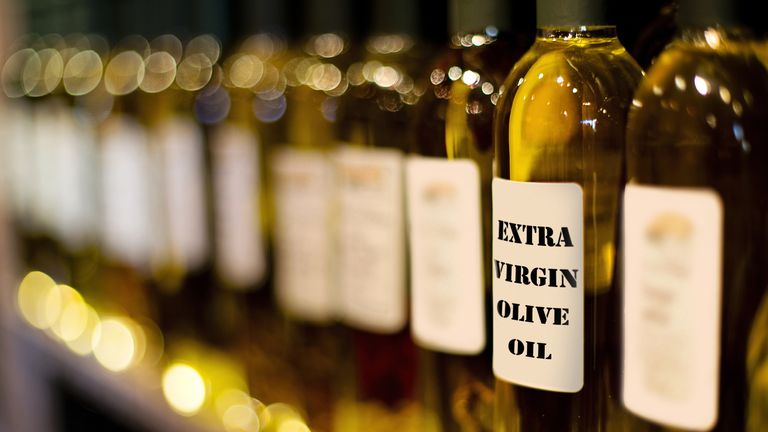British eating habits have transformed in the 47 years since the UK joined the common market.
There was a time when olive oil was only available in chemists and rationing constrained the national palate to a narrow spectrum.
Fast-forward half a century and Britain is a country that sloshes the extra-virgin around like cheap aftershave, has made pasta with pesto a slap-up meal, and avocado toast a social signifier.
This culinary revolution did not need EU membership to happen.
Around the same time as rationing was lifted in 1954, the great Elizabeth David began popularising continental tastes with hugely influential recipe books.
She brought a dash of Mediterranean sunshine into grey British kitchens, even if the produce she recommended was largely unavailable.
Improved transport and refrigeration technology started to change that, while television helped further broaden horizons.
But tariff-free access to the full European larder, from the fruit orchards of Spain to the olive groves of Greece, surely helped.
The UK leaves enjoying the luxury of a cheap, widely varied diet, with 40% of food, both fresh and processed, imported from the EU.
How much depends on the time of year.
Right now, in the depths of the northern winter, 90% of lettuces, 85% of tomatoes and 70% of soft fruit comes from the EU, a season-defying trade that brightens every plate.
Should the UK leave with no deal however they may be a little harder, and almost certainly a little more expensive, to come by, at least to start with.
Tariffs on food will be one of the most noticeable impacts should negotiations with Brussels come to nought.
There are thousands of EU tariffs for food produce and the British Retail Consortium (BRC) forecasts the average is 20%, but it can be much higher for popular “branded” goods.
Speciality cheeses like halloumi, gorgonzola, feta and Roquefort attract a 55% tariff, cured and processed porks like prosciutto and bratwurst could see increases of 31%, and branded olive oils 32% in the event of no deal.
The BRC estimates tariffs across the board will add £3.1bn to the UK’s collective shopping bill.
The Food and Drink Federation put it even higher at £10bn, or £360 for every household, once increased costs for other elements of production including packaging are added.
Quite how much of this additional cost reaches consumers is impossible to say at this stage.
Tesco chairman John Allan said last week it would add between 3%-5% to prices at the till, and supermarkets will be crucial in determining the cost to consumers.
A profoundly competitive sector may help keep prices suppressed as retailers calculate how much of the additional burden they can afford to pass on to customers while remaining competitive.
Our eating habits are likely to respond to price too, a shift that might favour British-made products that are tariff-free presuming we produce enough to service demand.
That is unlikely to be the case for national favourites like bacon, 60% of which is imported despite the strength of British pork farming.
And even if there is a deal that spares imports from tariffs, new red tape and delays arising from its interruption are likely to add new costs of their own.
From 1 January, it is estimated that UK trade with the EU will generate 220 million new customs declarations a year, up from around 50 million at the moment.
That paperwork will come at a cost, as will the delays that are considered inevitable as a result of its implementation where currently there is frictionless movement of goods.
Delays are likely to lead to wastage and possibly supply issues with fresh food if freight companies think twice about servicing the UK with no guarantee their lorry will be back inside 24 hours.
A study by the London School of Economics estimates these new procedures could increase the cost of goods by 8%, with import declarations alone adding £4bn to traders’ costs annually.
And even with a deal it forecast the price of branded or speciality foods could increase by almost 10%
It is worth saying the UK currently has the cheapest food in western Europe, 8% cheaper than the continental average, and the price of feeding the family has reduced as a proportion of household income by more than half in the last 60 years.
The UK will continue to slice chillies, juice lemons and grill sea bass but deal or no-deal, the cost of food is going to rise for businesses, and very possibly consumers.
And none of that was on the menu offered to voters in 2016.




